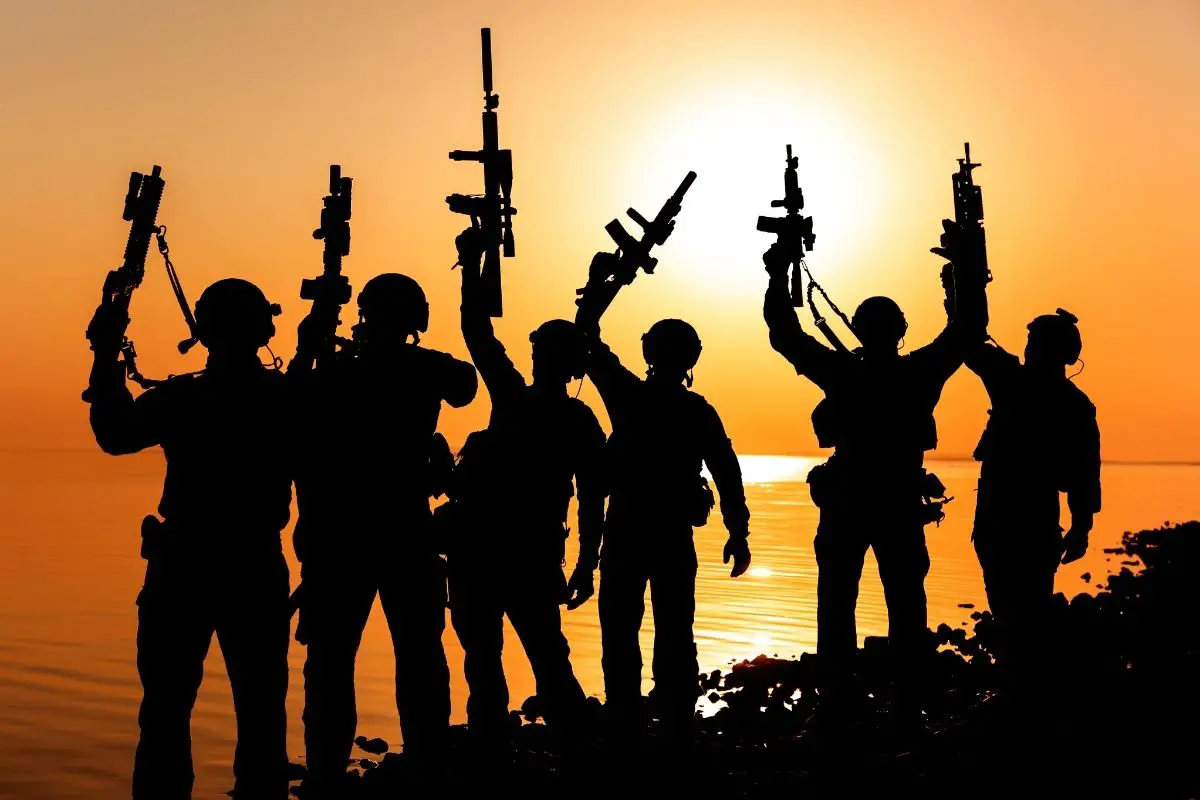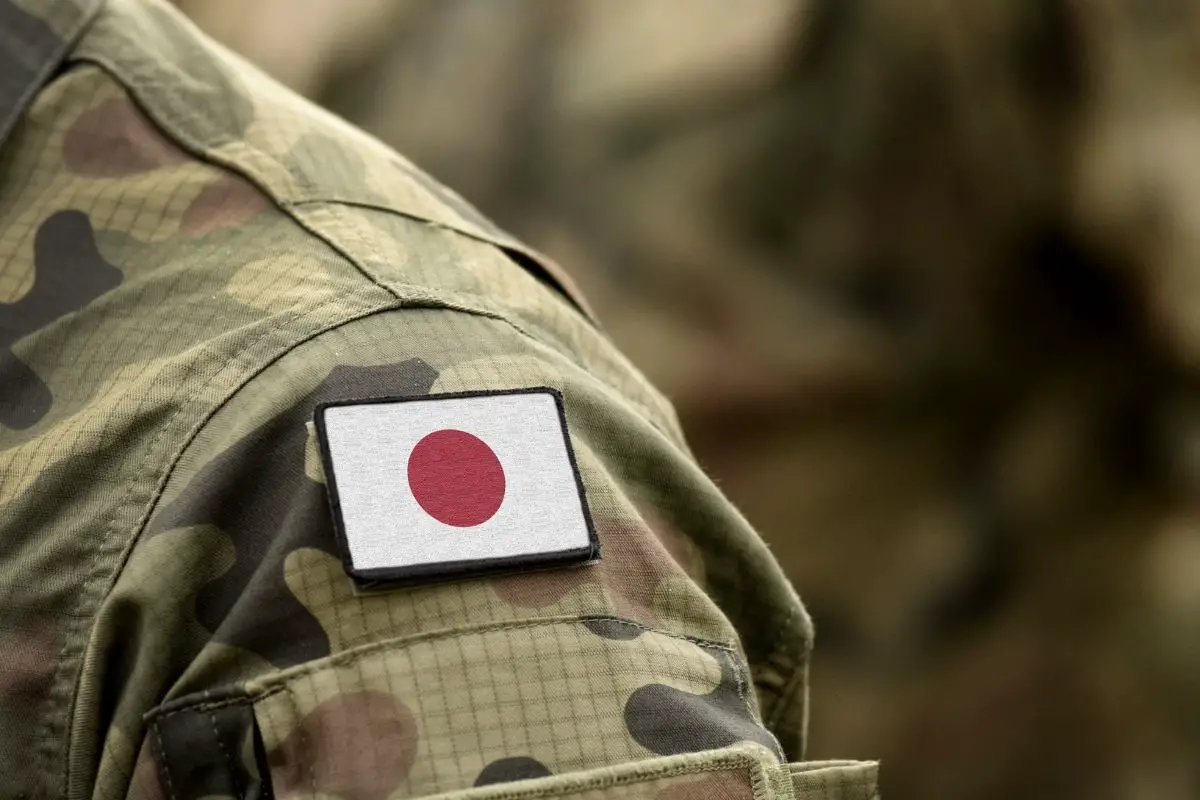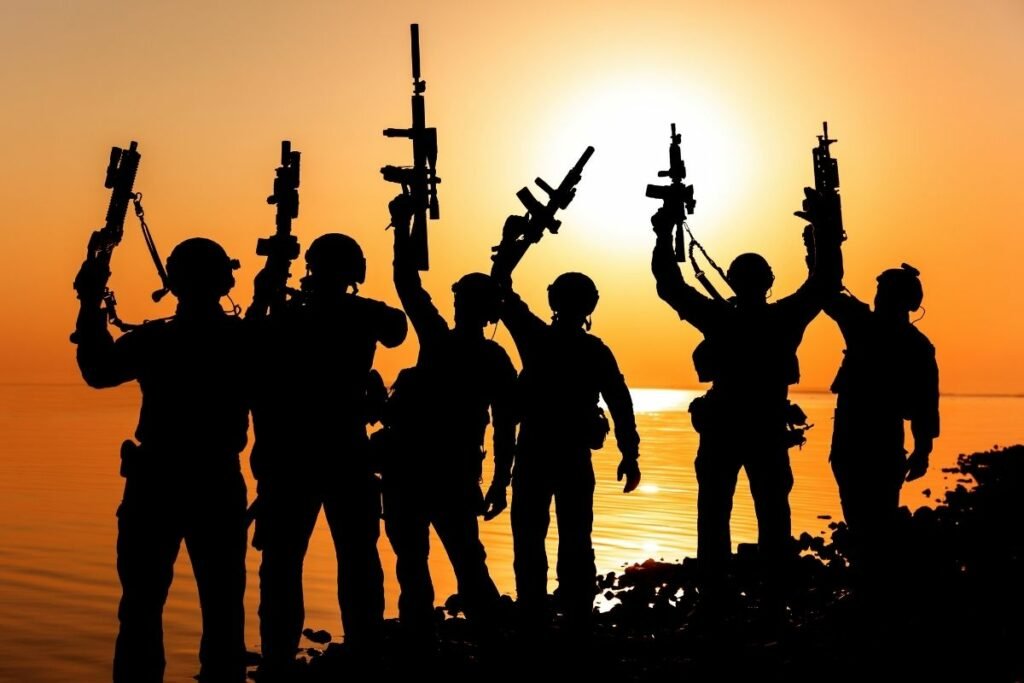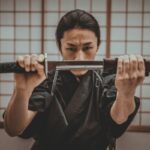At first glance, this might seem like an odd question.
Since almost all countries, except for a few particularly small ones, have armies, a lot of people just assume that Japan does as well.

But the answer’s not a simple one, and if you’re asking at all, then you probably have some understanding that the situation surrounding Japan’s military is complicated by its historical and political situation.
Here, we’ll clear the mystery up and explain exactly what the deal is with Japan and its military forces.
Historical Context
Japan’s current military situation is a result of its history (see also ‘Who Unified Japan?‘).
During the 19th century, Japan experienced the Meiji Restoration. This was an effort to modernize the entire country along more Western lines and included Japan as a whole adopting modern Western methods of production and industrialization.
One of the main causes of this sudden shift to focusing on modernization was when the US Commodore Perry came to Japan with advanced Western weapons and warships and was able to force Japan into signing a treaty that would open up Japanese ports to trade with the West (they had previously been closed for several hundred years).
This was a wake-up call for Japan’s leaders, who both recognized that they were lagging behind the Western powers and were determined that Japan would not be bullied again.
As a result, a major focus of the Meiji Restoration was on rapid improvements to Japan’s military to make it a force that could go toe-to-toe with any other force in the world.
This was successful, and Japan’s military became one of the most powerful in the world.
In the time before and during the Second World War, Japan carved out an empire for itself in Asia, committing many abuses of human rights, war crimes, and crimes against humanity along the way.
When Japan was finally defeated at the end of the war, it had to accept severe terms of surrender. All the territory it had captured was taken from it, and it was forced to adopt a constitution written mostly by the American occupation forces.
The most important part of this Postwar Constitution for our purposes is article 9, which forbids Japan from declaring war and from maintaining any land, sea, or air forces that could be used to make war.
The Japanese Self-Defense Forces

So, in theory, Japan should have no military forces of any kind, right? However, it’s not that simple.
Only a few years after Japan had adopted the new constitution, the tensions of the Cold War led many people, both in the Japanese government and the US occupation forces, to see the benefit of a rearmed Japan.
This resulted in the creation of the Japanese Self-Defense Forces, which was strictly intended to serve only a defensive purpose.
It is split into three main parts: the Ground, Maritime, and Air self-defense forces. These are, in effect, though not officially, the Japanese army, navy, and air force.
The self-defense forces actually had a fairly low reputation in Japan in the initial postwar decades.
The country was in a largely pacifist mood, and the SDF was widely seen as a continuation of the Imperial military forces that had been defeated and brought shame on the country.
Its main purpose was to provide assistance to the US in the event of a war in Asia involving either China or the Soviet Union.
Since this war never came, the SDF was essentially uninvolved in any kind of military action during the Cold War period.
The Japan Self-Defense Forces In The 21st Century
Following the 9/11 attacks in 2001, Japan passed a new law in October which allowed the SDF to take part in actions that aim to protect the world from terrorism.
This includes the ability to use their weapons to defend themselves and others who come under their protection.
Several hundred Japanese troops were deployed to Iraq for humanitarian purposes from 2004 to 2006. They were largely protected by Australian troops, as they were not allowed to engage hostile forces unless directly attacked.
However, since this time, the strict pacifist mood that had been the center of its military policy has been changing.
Several changes to laws have given the country more and more freedom to conduct operations overseas, leading to debate both inside and outside the country about how well this fits with the Postwar Constitution, which is still in force.
Most significantly, 2015 saw a series of laws passed that allow Japan to engage in what it calls “collective self-defense” with its allies, including providing material support to allies fighting overseas.
This is generally seen as being motivated by the continuing nuclear threat from North Korea, as well as the rise of China – both countries that have poor relations with Japan and the United States.
One of the expected results of this legislation is a joint Japanese-US naval task force that would repel any future invasion of Japan.
The Japanese military is widely regarded as one of the most powerful in the world, behind that of the US, China, and Russia.
Notably, it is the only one of those that is not a nuclear power. Though the Postwar Constitution does not actually forbid Japan from developing nuclear weapons, it has never tried to do so.
Part of the reason for this is that, because it is the only country that has ever been attacked with nuclear weapons, anti-nuclear feelings are high in Japan.
Another reason is that a Japan with nuclear arms would cause a huge upset to the balance of power in East Asia and take relations with both North Korea and China to serious lows.
Nevertheless, it is widely acknowledged that Japan has the scientific know-how, equipment, and technology to create nuclear weapons very quickly if a drastic change in the political situation required it.
Final Thoughts
So, there you have it. The answer to whether Japan has an army is ultimately yes but, as you’ve seen, it’s a lot more of a complicated yes than it would be for most other countries.
With the political situation in East Asia being what it is, it doesn’t seem like Japan will make a return to its former strict pacifism any time soon and if that’s the case, then the world probably hasn’t seen the last of the Japanese army.









